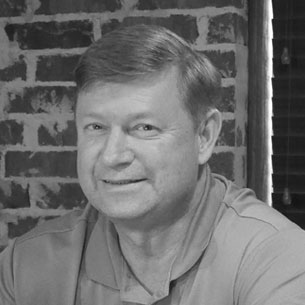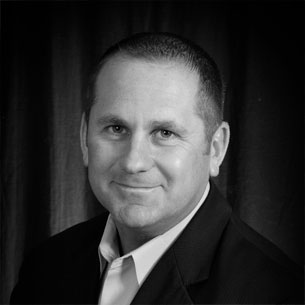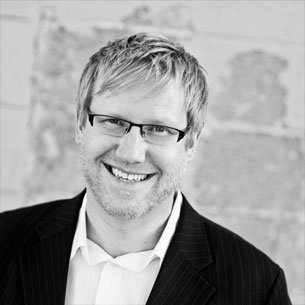
PLEASE UPGRADE TO A NEWER VERSION OF INTERNET EXPLORER
Founded by Mark Towler in the late 1990s, Phase 2 is an Oklahoma City-based software development company. For more than 20 years, we have been on the leading edge of custom business software development and solutions. From smartphone and tablet software, to web application and enterprise software, our team works smart and hard to bring value to every customer experience.
Phase 2 started in the infancy of the growing web movement and focused on a variety of client work, from complex and large web software to straight forward website design. Growing a broad and happy client base throughout Oklahoma and nationally, we grew our talent and experience to solve complex problems and deliver successful projects.
With over a decade and a half of experience and a uniquely talented team, Phase 2 made the decision to sell the website line of business to the growing Oklahoma City based team at Liquid Fish. With the ability to focus exclusively on complex custom software, we have steadily grown our team and become one of the premier software developers in the country.
In late 2012, the decision was made to move from our long term office space to a brand new home for the growing business. Breaking ground in early 2013, a new office space, custom designed to foster the creativity and craftsmanship of the talented team, went into construction. In September 2013, Phase 2 moved into our new home located by the Quail Springs Corporate Park.
Our success is a result of the creativity, innovation, and passion of our team - all experienced Oklahoma-based software developers and designers. Phase 2 is the safe call as your software and technology development partner. For over 20 years Phase 2 has been the most reliable choice to quickly add value to your business and provide the top talent in the market to tackle challenges and opportunities with creative software solutions.

Everything matters. Details matter. Culture matters. We know that building a great company, with great people, and a great environment is difficult. We believe that paying attention to the details, protecting our culture, saying no to the wrong things and yes to the right things, defines our success. Phase 2 is a great place to work because everyone on the team works hard to make it that way - and we have a blast while we're at it.
"We have the best software developers and designers in Oklahoma City who work together as a team because their egos are not too large to listen to input from clients and their peers. This allows us to produce the absolute best products for our clients."
Software Engineer
Founder & CEO
Software Engineer
Sr. Software Engineer
Software Engineer
Vice President
Office Manager
Software Engineer
President
Vice President
Software Engineer
CTO
Support Engineer
Vice President
Software Engineer
Creative Director
Software Engineer
Sr. Software Engineer
Quality leadership from everyone in the organization is one of our core values. We believe leadership starts with carefully crafting and protecting a great culture. We must then make sure the processes and procedures get obstacles out of the way of smart people solving hard problems. Our executive team diligently works to create a company with great culture packed with great people.

Founder & CEO
Mark founded Phase 2 in 1998 with a vision to bring effective communication into the software development industry. Mark has an extensive background with fast-growth software companies in northern California and brings vast knowledge to the Midwest's tech industry. When he's not at Phase 2, Mark is a member of Rotary 29, a past president of the American Marketing Association, and the State Chamber's Tech Advisory Board.
405.698.3747
markt@phase2online.com
President & COO
Heath is responsible for Phase 2's day-to-day operations and has helped companies with the adoption of technology and for over 19 years. Heath has an MBA with an emphasis in E-business and is a graduate of Leadership Oklahoma and Leadership Oklahoma City. Outside of Phase 2, Heath enjoys spending time with his family and competing in triathlons and crossfit competitions.
405.820.6494
heathc@phase2online.com
CTO
Since graduating college with a degree in philosophy & religion, Shane has spent the last 20 years designing, developing and implementing software. From large-scale enterprise management software implementations, to multi-million dollar online banking platforms, to simple web tools, Shane has a wealth of experience using technology to improve how people work and play.
405.595.9513
shanek@phase2online.comThroughout our years of experience with various companies, we have have learned many lessons on which we base our business practices. Our founder, Mark Towler, sat down one day and put together the Phase 2 Rules, a set of general guidelines to follow everyday as a business and in life. We find ourselves referring to the rules on a daily basis because they apply to so many aspects of our lives.
Phase 2 formed in January of 1998 as a spin off from The Rock Island Group. At that time, we inherited some customers from The Rock Island Group, but it wasn’t until later that year that we got a call from Brian Blake. Brian was with Little Giant Pump Company that later turned into a marquee account for Phase 2. It was our first large account and an on-going customer that we could reference into new business. Once the project got underway, we asked Brian how he had heard about Phase 2. It turns out that Brian had interviewed for a position with The Rock Island Group back in 1996. Although Rock Island didn’t hire him, he was so impressed by how he was treated during the interviews that he kept our business cards. When it came time to find a web firm for Little Giant, the first company that came to mind was Rock Island, which of course led to him finding out about Phase 2. Had he not had that good, positive experience with Rock Island, Brian probably would never had heard about Phase 2 and we would never had worked with Little Giant.
It’s important to remember that in all things we do – business meetings, interviews, involvement in youth sports, etc. – everyone you meet could be another Brian Blake.
In the spring of 1999, I was reviewing our financials with Dr. Rod Evans, Dean of Business at OU and a long time friend of the company. We were profitable for the first time and it was an occasion to do a little bragging to Dr. Evans about our progress. Dr. Evans acknowledged that this was a good thing but went on to warn me that where most companies get in financial trouble is by not paying attention to their expenses when they’re profitable and things are going well. He looked across the table at me and summarized his remarks: "So, before you spend any money, what you have to ask yourself is this: Do you want to spend that money or keep it and buy yourself a bottle of whiskey?"
Whenever we think about spending money, we should always consider that bottle of whiskey as a way of maintaining fiscal discipline.
I once worked with a man from west Texas named Bill Grissom. Although Bill was a financial guy, he had a love of folk music thanks to his father, Dub. Dub taught Bill many lessons over the years including how to strum a guitar.
The other lesson became something we now call the Dub Grissom Rule: "It is not enough to communicate to be understood… you must communicate in such a way as to not be misunderstood."
Too often we say things that we understand and assume the person we’re talking to also understands exactly what we mean. However, to communicate effectively with our employees, customers, prospects, etc., we need to communicate in a way that absolutely cannot be misunderstood.
Through a business organization I belong to, I met a gentleman a few years older than myself. He was in good health, running a growth-oriented company and generally getting wrapped up in all things involved with running a business. One day, out of the blue, he had a stroke. Although not serious enough to stop him from doing the things he wanted, the event made him realize first hand how short life can be. In explaining this to our group, this gentleman mentioned that after the stroke, he took time to fix a leaky faucet in his bathroom that "he had always been meaning to fix." It was something he knew he would get to eventually, but he just hadn’t done it yet. He went on to say that he was enjoying a better relationship with his wife since that event took place. I was struck by the fact that this guy was probably fixing leaky faucets in all aspects of his life.
Companies like Phase 2 can consume a tremendous amount of time and energy. It’s important that we all take time to fix the leaky faucets in our lives.
About 2 years after Phase 2 started, a prospective customer approached us to build a really interesting interactive web application. We were confident that the project was right in our sweet spot in terms of the project deliverables, but we had some concerns about the people we would be dealing with. We went forward with the project, but as the work went forward, it became increasingly clear that the customer we were dealing with had a very different set of ethical standards than we did. This caused all sorts of problems as we completed the project. When we were done, we disengaged with this customer as quickly as possible. As we did our post-project debrief, we were lamenting the fact that we had ignored our concerns about the people we would be dealing with. We agreed that we would not do that again.
It was at that point when one of our team members piped up and summed up our feelings best by saying: Life's too short to dance with ugly women!
Throughout our years of experience with various companies, we have have learned many lessons on which we base our business practices. Our founder, Mark Towler, sat down one and day a put together the Phase 2 Rules, a set of general guidelines to follow everyday as a business and in life. We find ourselves referring to the rules on a daily basis because they apply to so many aspects of our lives.
Phase 2 formed in January of 1998 as a spin off from The Rock Island Group. At that time, we inherited some customers from The Rock Island Group, but it wasn’t until later that year that we got a call from Brian Blake. Brian was with Little Giant Pump Company that later turned into a marquee account for Phase 2. It was our first large account and an on-going customer that we could reference into new business. Once the project got underway, we asked Brian how he had heard about Phase 2. It turns out that Brian had interviewed for a position with The Rock Island Group back in 1996. Although Rock Island didn’t hire him, he was so impressed by how he was treated during the interviews that he kept our business cards. When it came time to find a web firm for Little Giant, the first company that came to mind was Rock Island, which of course led to him finding out about Phase 2. Had he not had that good, positive experience with Rock Island, Brian probably would never had heard about Phase 2 and we would never had worked with Little Giant.
It’s important to remember that in all things we do – business meetings, interviews, involvement in youth sports, etc. – everyone you meet could be another Brian Blake.
In the spring of 1999, I was reviewing our financials with Dr. Rod Evans, Dean of Business at OU and a long time friend of the company. We were profitable for the first time and it was an occasion to do a little bragging to Dr. Evans about our progress. Dr. Evans acknowledged that this was a good thing but went on to warn me that where most companies get in financial trouble is by not paying attention to their expenses when they’re profitable and things are going well. He looked across the table at me and summarized his remarks: "So, before you spend any money, what you have to ask yourself is this: Do you want to spend that money or keep it and buy yourself a bottle of whiskey?"
Whenever we think about spending money, we should always consider that bottle of whiskey as a way of maintaining fiscal discipline.
I once worked with a man from west Texas named Bill Grissom. Although Bill was a financial guy, he had a love of folk music thanks to his father, Dub. Dub taught Bill many lessons over the years including how to strum a guitar.
The other lesson became something we now call the Dub Grissom Rule: "It is not enough to communicate to be understood… you must communicate in such a way as to not be misunderstood."
Too often we say things that we understand and assume the person we’re talking to also understands exactly what we mean. However, to communicate effectively with our employees, customers, prospects, etc., we need to communicate in a way that absolutely cannot be misunderstood.
Through a business organization I belong to, I met a gentleman a few years older than myself. He was in good health, running a growth-oriented company and generally getting wrapped up in all things involved with running a business. One day, out of the blue, he had a stroke. Although not serious enough to stop him from doing the things he wanted, the event made him realize first hand how short life can be. In explaining this to our group, this gentleman mentioned that after the stroke, he took time to fix a leaky faucet in his bathroom that "he had always been meaning to fix." It was something he knew he would get to eventually, but he just hadn’t done it yet. He went on to say that he was enjoying a better relationship with his wife since that event took place. I was struck by the fact that this guy was probably fixing leaky faucets in all aspects of his life.
Companies like Phase 2 can consume a tremendous amount of time and energy. It’s important that we all take time to fix the leaky faucets in our lives.
About 2 years after Phase 2 started, a prospective customer approached us to build a really interesting interactive web application. We were confident that the project was right in our sweet spot in terms of the project deliverables, but we had some concerns about the people we would be dealing with. We went forward with the project, but as the work went forward, it became increasingly clear that the customer we were dealing with had a very different set of ethical standards than we did. This caused all sorts of problems as we completed the project. When we were done, we disengaged with this customer as quickly as possible. As we did our post-project debrief, we were lamenting the fact that we had ignored our concerns about the people we would be dealing with. We agreed that we would not do that again.
It was at that point when one of our team members piped up and summed up our feelings best by saying: Life's too short to dance with ugly women!